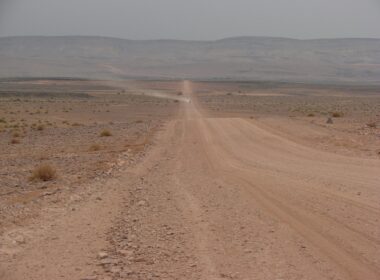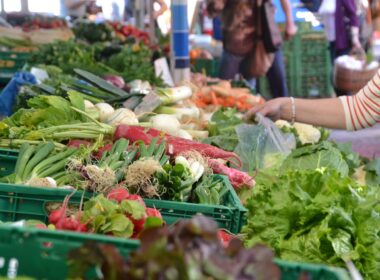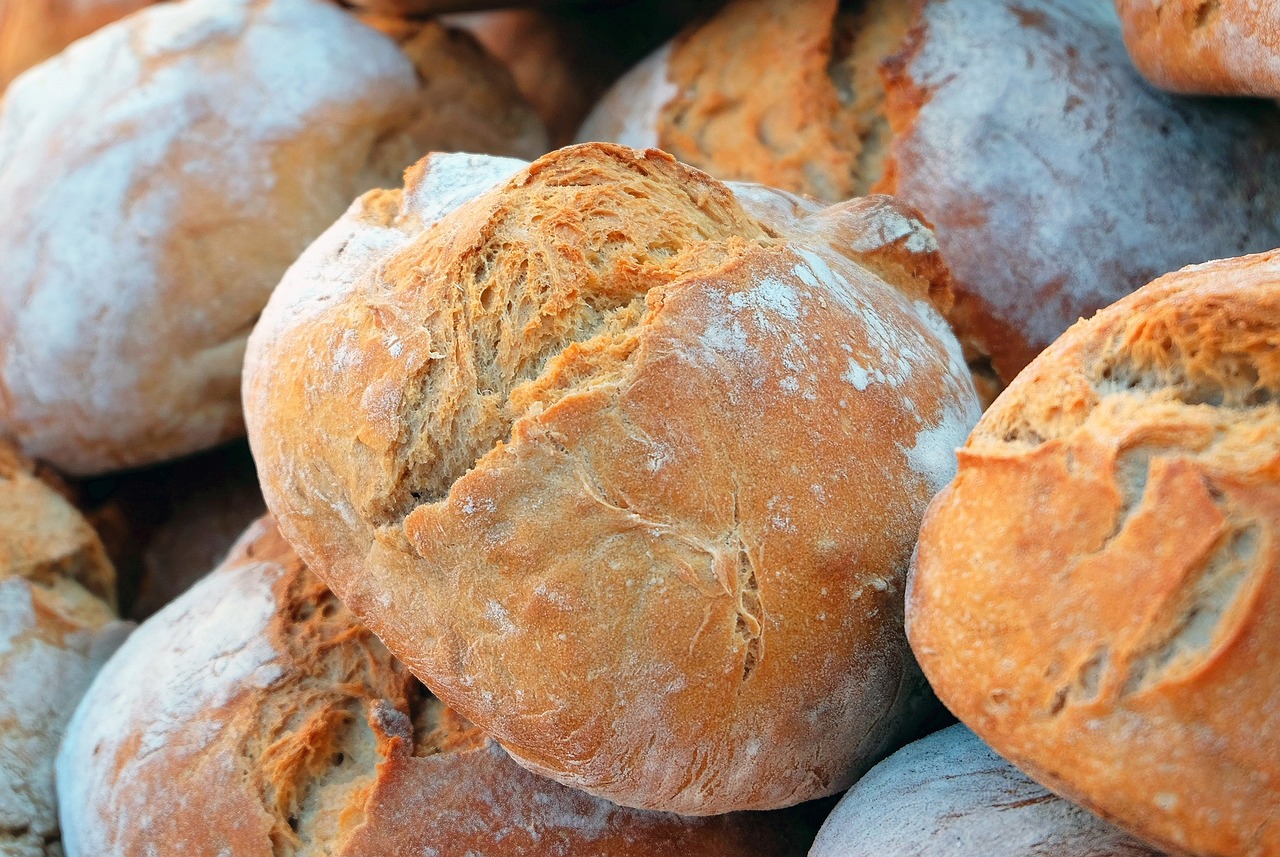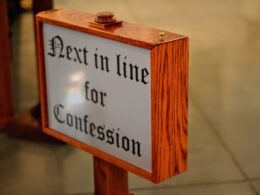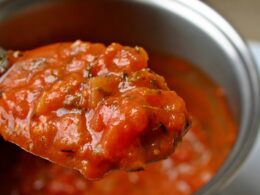“When we do not eat with God, we are lost with God.”
Harold pushed up his wireframe glasses until they pinched the bridge of his nose. Looking down from the ambo, he widened his eyes at the Sunday school teacher in the first pew. “Mmm?” He paused there, hovering on the silence, staring, to let the power of his observation sink in.
Then: “But of course, we do not eat the same things. Our culture is obsessed with diet and the restrictions that purportedly give us good health, a good body, a sound mind. The trouble is, there’s little consensus: Men’s Health will tout one cure-all diet, while the FDA gives us an upside-down food pyramid and the Surgeon General says something altogether different. Nevermind what advertising has to say about it.
We know we must eat to survive, but what we eat is a bit of question mark.
“Imagine, for just a moment, that one of the apostles was a celiac. On the night of the Last Supper, the 12 gather around Jesus. He breaks bread and passes it along. Each of the apostles takes a piece and, eventually, the loaf lands in the hands of the buzzkill celiac.
‘Ehm, Rabbi,’ he stutters.
‘Yes?’
‘I don’t mean to be difficult but, you see, I have issues with bread.’
Jesus wrinkles his brow, cocks his head. ‘What do you mean?’
‘It gives me stomach aches.’
‘Oh just eat it, you daisy,’ John interjects from Jesus’ left.
‘Seriously, we’re having a nice meal and you have to fuss about the particulars of the food,’ echoes Peter, a little on edge about a premonition he had. Can’t put his finger on it.
‘Yes, I know, I know,’ admits the bread-afeared apostle, ‘but I’m heading to Emmaus after this, and it’s a long road to trod with cramps, and well, could I just eat it symbolically? Maybe lick it or something?’
‘Lick it? What are you, a dog?’ John again, leaning in front of Jesus. ‘I’m sorry, Lord, we did talk about this before dinner and I thought we had agreed to just enjoy what was laid out, mmm?’ At this, he glares at sheepish apostle #7.
‘Brothers, brothers,’ Jesus cut in, gently pushing John back into his seat. ‘No need to fuss. I have fish!’
‘God bless you, Lord!’ says #7, clearly relieved he doesn’t have to clutch his stomach all night, tromping to Emmaus.
In the end, the Last Supper proceeds, the wine is blessed and shared, and they all give thanks. Hallelujah.”
At this, Harold paused, repositioned his glasses, and sighed.
“Do you notice something?” He looked over the ambo at the Sunday school teacher again, seeming to ask her directly.
Silence rippled along the pews.
“Every Sunday, we ceremoniously recreate the Last Supper. We make bread, and we bless it. We purchase wine (albeit not very good wine), and bless it. Then, we share.
But you’ll notice, we never introduce fish. It would be convenient enough to sub in some Goldfish crackers to replicate what I imagine was a very inclusive meal. We don’t.
Now I realize—“ he flailed a bit at this, shrugging in his oversized chasuble, “— I realize that we have no evidence of a celiac at the Last Supper. And even if we did, there’s no evidence of a substitution or bickering between apostles. Much fun though that is to imagine.
The point of this fiction is simply that we forget that the meal is not about the food. The food is symbolic nourishment. Yes, of course, we need food to survive — and we offer the basic elements of that nourishment every week. But in our craze around food that feels good, tastes good — food that rejuvenates and invigorates, food that makes us fresh and ripped and sharp — we forget that the Last Supper was not about food at all. It was about companionship. People. Relationships.”
Harold sighed, as though he had made this point 10,000 times and nobody had ever listened. Here he was again, regurgitating the same simple idea.
“If we do not eat with God, we are lost with God. God doesn’t care much what you eat or what you’re serving — as long as you invite him (and the faithful) to the table.”
Harold paused for punctuation. This was supposed to be the end of the homily. He turned, collecting up the excess cloth that hung over his fingers, and began down the steps of the ambo.
“Father?” One of his parishioners — a young, 30-something lawyer from upstate New York — raised his hand. Harold turned, shocked. “Isn’t the Last Supper more about making sure all are welcome at the table by offering food that everyone can eat?”
“Yes, I was thinking the same thing,” chimed in Sarah Ann, the retired nun and consummate busy body in the third pew. “Yes, fine, about relationships, I see that, but it’s also about caring enough for the people in your company to give them something they enjoy. It’s very much about the food in that sense.”
The congregation murmured in agreement, nodding to each other.
“Yes, yes,” said Harold, now back in the ambo futzing with his glasses and eking out his own clarification, “of course to be good hosts one should offer what the guest wants, even if it’s not what you would care to serve, but—”
“And see that’s the crux of it,” said Kevin, the NY lawyer in a painfully tight button-down. “It’s focusing on giving. In that sense, it doesn’t matter what is served, as long as it pleases the guest. Sacrificing one’s own preferences for the comfort of others.”
Harold, realizing the service was running away from him, interjected, “Yes, but let’s not forget about the covenant that was forged the night Christ died, and the symbol of bread and wine as the tangible signs of that covenant. That covenant was about relationships.”
“Oh pish-posh,” waved Sarah Ann. “Christ was crucified — that was the mark of the covenant. The Last Supper was just a meal that got too much play in the New Testament.”
“Excuse m—” Harold attempted, once again, to set the record straight, but Kevin cut in.
“We could just as well have Goldfish crackers and talk about the NBA playoffs.” Chuckles rolled through the pews, a “Yes!” or two punctuating.
He continued: “Actually, that reminds me. Isn’t game four on today? Anyone want to catch it with me?” He got up and slid to the end of the pew. “You’re all invited — and please, bring what you want to eat. I’ll have beer, chips and salsa — and I can probably rustle up some Goldfish crackers.”
Parishioners starting getting up, following Kevin down the sanctuary and out the door.
“Now just a minute—” chimed the defeated Harold, attempting to bring order to chaos. Nobody paid any attention. After a few minutes of commotion, there were just two people left in the pews: Sarah Ann and the Sunday school teacher, sitting at a stiff 90 degrees, hands in her lap, biting her lip.
Harold didn’t know what to do. He froze, mouth open, alone at the altar. When the doors closed behind the last parishioner, silence rang through the sanctuary. Eventually, he shook his head aggressively and looked at Sarah Ann. “Not going to join them?” he prodded bitingly, waving his chasuble at the doors.
“No,” Sarah Ann said, matter-of-factly. “I don’t care much for basketball. But I really don’t like your sermons.”
With a wry smile, she stood and walked confidently toward the nave, leaving Harold and the Sunday school teacher alone with 165 communion wafers and a box of four-week-old Franzia.
